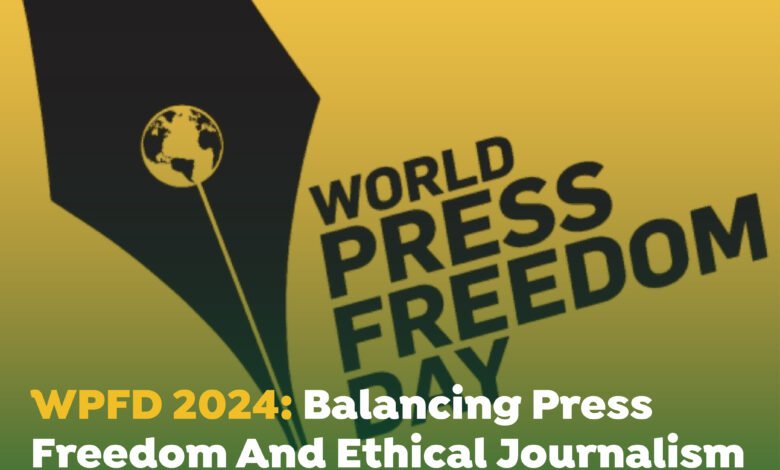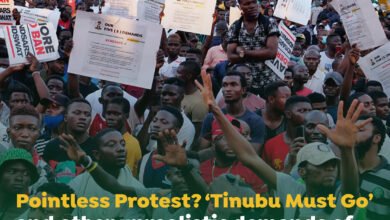
Every year on May 3rd, the world comes together to celebrate World Press Freedom Day (WPFD). This international observance highlights the importance of a free and independent press for a healthy democracy.
It’s a day to reflect on the sacrifices journalists make to bring the truth to light and to advocate for the safety of those who work tirelessly to hold powerful institutions accountable.
This year’s WPFD in Nigeria was devoid of any fanfare as it was overshadowed by the recent abduction of Ojukwu Daniel, a reporter for the Foundation for Investigative Journalism (FIJ).
Wave of abductions
Ojukwu’s case, unfortunately, is not an isolated incident.
No one knows precisely how Ojukwu was ‘abducted’ but then, various reports say he was whisked away in a Gestapo-like manner.
“Policemen acting on the orders of the Inspector General of Police abducted FIJ Nigeria reporter Ojukwu Justin Daniel on Wednesday”, Fisayo Soyombo, Founder of the FIJ, alerted the public in a string of tweets via his verified X handle on Friday, 3 May 2024.
“FIJ only discovered this today, the World Press Freedom Day, set aside globally to raise awareness of the importance of the freedom of the press”, he concluded.
Challenged Investigations
Soyombo’s revelation quickly sparked online outrage as media practitioners criticised the abduction while calling on the authorities to curb police excesses.
Further findings however revealed that Ojukwu was picked up and taken into custody because of a petition written by Dr Muiz Banire (SAN), a chieftain of the All-Progressives Congress.
While the narrative across social media platforms suggests Ojukwu’s only ‘wrongdoing’ was that he wrote a story that exposed alleged corruption involving the former Lagos State Deputy Governor Adejoke Orelope-Adefulire, during her stint as former President Muhammadu Buhari’s aide, the Nigeria Police has said otherwise.
“It’s a case of violation of the Cybercrime Prohibition Act 2015 and other extant laws of the land. He has a case to answer.” Muyiwa Adejobi, force spokesperson said on Sunday.
Another source familiar with the controversial report by Ojukwu feared the journalist may have shot himself with his ‘half-baked’ investigation.
“They were a lot of loopholes in that controversial report and anyone who has a name to protect will not allow such to just slide by, I think as journalists, we have to get our facts right before we go to town with any findings” a source privy to the contentious article even before it was published stated.
Ojukwu’s case like many others has been caught in the web of investigative reporting and libellous content devoid of hard facts to validate veracious claims.
Segun Olatunji, editor of First News, is another recent example. Olatunji’s investigative report linking President Bola Tinubu’s Chief of Staff, Femi Gbajabiamila to a massive corruption scandal landed him in the hands of a combined security force contingent.
Already, Mr Gbajabiamila has threatened to file a libel suit against Olatunji, over “false and malicious defamatory” articles about his person.
Gbajabiamila is, demanding a public apology from Olatunji and FirstNews and a retraction of the alleged false and malicious defamatory articles in seven days.
Citizen Journalism: A Double-Edged Sword
While accountability journalism is a necessary recipe for democracies to thrive, the rise of social media and smartphones has empowered a new breed of journalists – the citizen journalists.
Though this sect plays a role in disseminating information and holding authorities accountable, the lack of editorial oversight has often led to the spread of misinformation and fake news.
Many have advocated for training programs for aspiring citizen journalists on journalistic ethics and fact-checking can help mitigate these risks.
Citizen journalism, when responsibly practised, can be a powerful tool for holding authorities accountable and complementing the work of professional journalists but when done haphazardly it has the potential to disrupt the polity; a situation no government would tolerate.
While the Nigerian government must take concrete steps to protect journalists and ensure that the freedom of the press is respected, the public must also be aware of the importance of fact-checking and verifying information before sharing it in public space as the consequence of not doing diligence maybe tougher than imagined.




